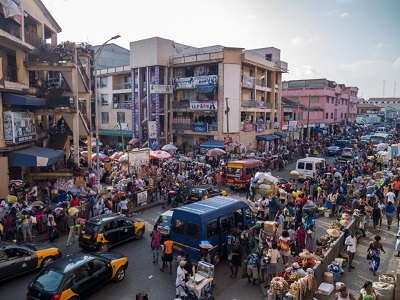Ghana’s economy Still operating in “below capacity”
“The lagged impact of restrictive credit conditions for both private investors and the government will continue to weigh on fixed capital formation over the year. Indeed, real credit growth contracted by an average of 23.8% y-o-y over January-August 2023 (latest available data) pointing to continued weakness in investment activity.
- Advertisement -
Research firm, Fitch Solutions, says it expects Ghana’s economy to operate below its capacity for the year 2024.
This is on the back of the 3.5% projected GDP growth for 2024 which is below the average 5.3% GDP growth rate recorded from 2015 to 2019.
- Advertisement -
“We anticipate the Ghanaian economy to continue operate below capacity, further incentivising the BoG to lower interest rates. While we expect that real GDP growth will accelerate to 3.5% in 2024 from an estimated 2.7% in 2023, this will remain well below Ghana’s 2015-2019 average of 5.3%,” quipped Fitch Solutions.
- Advertisement -
“The lagged impact of restrictive credit conditions for both private investors and the government will continue to weigh on fixed capital formation over the year. Indeed, real credit growth contracted by an average of 23.8% y-o-y over January-August 2023 (latest available data) pointing to continued weakness in investment activity. Given our expectation that quarterly GDP outturns will disappoint, BoG policymakers will seek to lower interest rates to support the economy,” it added.
Fitch Solutions has identified potential upward pressures on Ghana’s interest rate forecasts, citing geopolitical tensions and their impact on global trade dynamics.
- Advertisement -
The research firm underscores the vulnerability of Ghana’s economy as a net importer of crucial commodities like fuel and food items. Heightened geopolitical tensions, Fitch Solutions warns, could disrupt global trade flows, leading to a surge in commodity prices worldwide. Such a scenario would inevitably translate into increased import costs for Ghana, posing a threat to the country’s ongoing efforts to stabilize inflation.
Moreover, Fitch Solutions highlights the risk of prolonged negotiations between Ghana and its commercial creditors. Delays in reaching agreements could extend beyond initial expectations, potentially delaying IMF disbursements and eroding investor confidence. This, in turn, could trigger a sell-off of the Ghanaian cedi and reignite inflationary pressures.
In anticipation of these challenges, Fitch Solutions suggests that the Bank of Ghana may adopt a more cautious stance in its monetary easing cycle than previously anticipated.
Source:norvanreports
- Advertisement -


